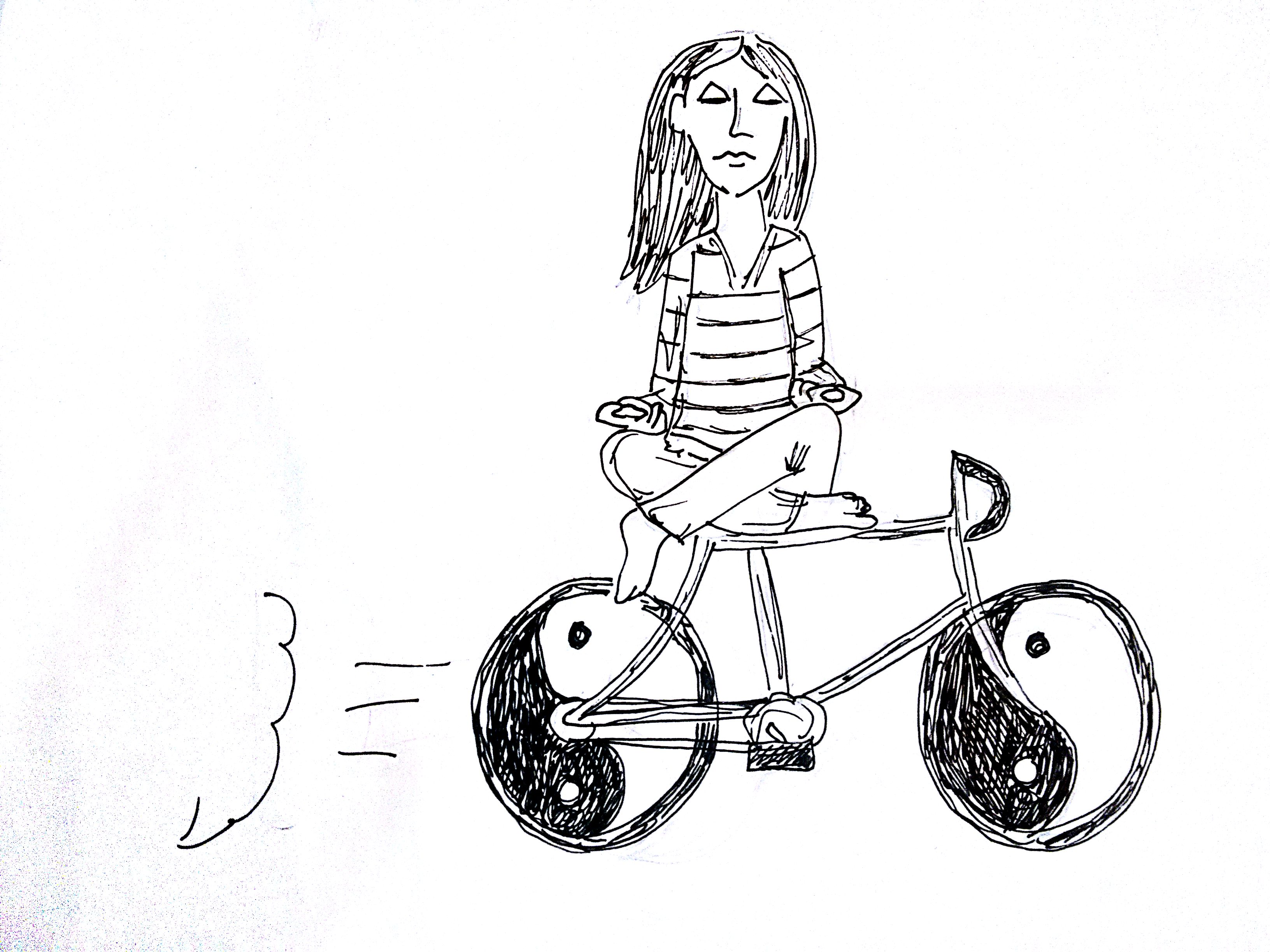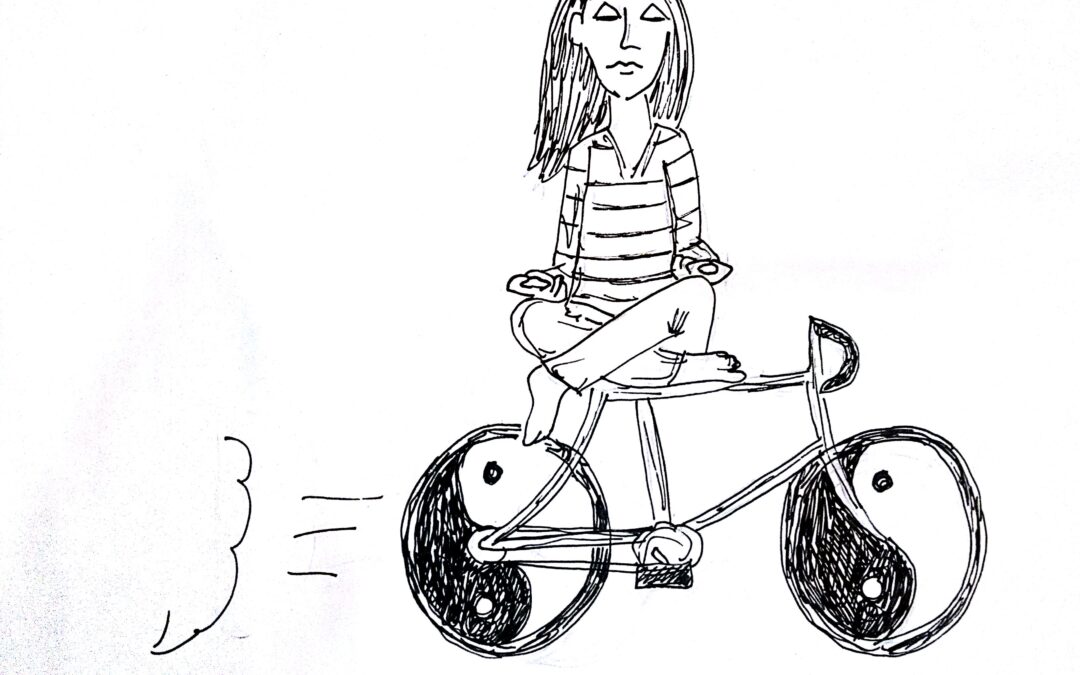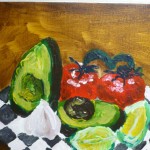 When a successful person is asked to share the secrets of his or her success, the unanimous response is that success requires “effort” and “hard work”. Other popular euphemisms are that success demands “sweat, blood and tears” or “1% inspiration, 99% perspiration”. In grade school we’re lectured on working harder and reprimanded for not trying hard enough. Put in the time and effort to get the grades that will land you the job that will require similar or increasing levels of time and effort. Olympic athletes are lauded as modern-day heroes for their early mornings, punishing workouts and restricted diets. Our society reveres those who put in 80-hour work weeks, despite their implausibility, as we all need to sleep, eat and defecate, which take up hours that are obviously not spent working. It’s a shame to some that we’re limited by these earthly, time-consuming bodies that have been the disdain of capitalism since it’s inception. I see more youth in my practice, who are already bearing the weight of society’s expectations. They are working hard, as instructed, and this “hard work” is taking a physical, mental and emotional toll on their lives. But what can they do? Success requires effort, goes the mantra of our times.
When a successful person is asked to share the secrets of his or her success, the unanimous response is that success requires “effort” and “hard work”. Other popular euphemisms are that success demands “sweat, blood and tears” or “1% inspiration, 99% perspiration”. In grade school we’re lectured on working harder and reprimanded for not trying hard enough. Put in the time and effort to get the grades that will land you the job that will require similar or increasing levels of time and effort. Olympic athletes are lauded as modern-day heroes for their early mornings, punishing workouts and restricted diets. Our society reveres those who put in 80-hour work weeks, despite their implausibility, as we all need to sleep, eat and defecate, which take up hours that are obviously not spent working. It’s a shame to some that we’re limited by these earthly, time-consuming bodies that have been the disdain of capitalism since it’s inception. I see more youth in my practice, who are already bearing the weight of society’s expectations. They are working hard, as instructed, and this “hard work” is taking a physical, mental and emotional toll on their lives. But what can they do? Success requires effort, goes the mantra of our times.
This effort shows up on faces and in bodies. Our minds exhaust us with chastising inner talk; teeth clench, jaws grind and shoulders hunch around ears, creating a new neck-less species, The Hard Worker, inhabiting the earth in increasing numbers.
70% of people today admit to being under stress. When I asked my patients if they feel “stressed”, many shrug, deny or tell me their stress is nothing that they can’t handle, and then proceed to rank their stress levels as 6 out of 10 or higher, 10 being a hair-pulling, crazy-eyed, stressed-out-of-their-wits state—I find it significant that being more than halfway to our limits still qualifies us as not being stressed.
It’s likely that admitting to stress and overwhelm is a weakness in our effort-driven society. If the bodies we inhabit fail to perform, we’ll be replaced by someone more able-bodied, or someone more able or willing to push their limits and sacrifice their health for short-term success—or maybe a machine. Machines don’t need paid vacation or sick leave. While the future seems bleak, it certainly helps with the healing business, as 75-90% of doctor’s visits are either directly or indirectly stress-related. We know that stress has the power to wreck havoc on the body, contributing to diseases, inflammation, decreased immunity, proliferation of cancer and premature aging. We know that stress is implicated in the rising incidence of mental health conditions. We know that things can’t go on as they are, the system is simply not working.
And so when modern society is failing us, it helps to turn to ancient ideas, before it all went wrong, such as Taoist philosophy, to look for answers. The Taoist principles of wu wei, or “effortless action”, tell us that action does not always originate from effort and stress. Effective actions, like creativity and good ideas, can occur spontaneously and of their own accord.
In a society where relentless growth and production are imperative for the survival of the economy, it’s hard to image any action in the absence of sheer effort. Incessant production can’t rely on the eb and flow cycles of natural inspiration and creativity to dictate when, how much or how hard we work. And yet, this perhaps says more about the societal necessities of the work available to us, and our enjoyment (or lack thereof) of such work, than it does about human inspiration. I’ve been planning this blogpost for a while and although it might have been written sooner if set to a deadline, I’ve eventually gotten around to it; here it is. It is a fact that when things need to get done, they will. The doing might happen later than we’d like it to, and yet it still happens, inspired by a genuine desire or necessity, rather than pressure-cooker of stress.
I’m often asked, as a doctor, to help support my patients’ bodies in periods of intense stress—”periods” that have gone on for years with no apparent end in sight. While there are several remedies that can help the body recuperate from the wear and tear of effort or help the adrenal glands secrete more cortisol to continue producing more and faster, there’s also only so much that can be squeezed out of tired organs. Oftentimes, as I’ve written before, the path to healing is paved with introspection and a serious reconsideration of lifestyle. Can we continue to produce and strive at our current rates and still expect to feel fit, healthy and energized? We can build faster computers and smarter phones but our bodies are very much limited to the tools nature has slowly evolved over time, including the natural medicines available to us. Perhaps our lifestyles, like the economy and the stress on the environment, are simply unsustainable. Perhaps it’s time to question how many of the activities in our lives are worth the effort.
While it may not be possible to quit our jobs, pack up and move to the Bahamas, perhaps there are small nooks in our routines where wu wei might fit and flourish. It may be possible to ease up on our own expectations of ourselves, or give up some of our conventional ideas of success. After all, is the journey to success worth slogging if we won’t be happy or healthy when we get there? Finding space in our lives to allow action to arise spontaneously may be crucial in doing the necessary, healing work of stress-management.
Applying wu wei might mean examining the intentions behind our actions and our current lifestyles. Here are some questions to ask yourself.
- When is effort appropriate and when is it wasted?
- Where am I trying to get to? What is my definition of success?
- Is there a day/afternoon/hour in my week when I can “schedule” unscheduled time?
- Are there tasks I can ease up on, laundry for instance, that I can trust will get done on their own time?
- Can I agree to forgive myself when I fail to meet deadlines or choose to take a day off?
- What would it feel like to stop paddling and let the current carry me for a while? Can I do this at work? At home?
- In what area of my life could I allow myself a little more room to breathe?
- What are my top ten values in life? What goals align with those values? What actions would help me move closer to those goals? How much does thinking of those actions excite or inspire me?








Stress Solution is too important for suffering peoples… Dr. Talia post awesome article for stress victim’s. Make like this type of idea’s for us.
Thanks & Regards